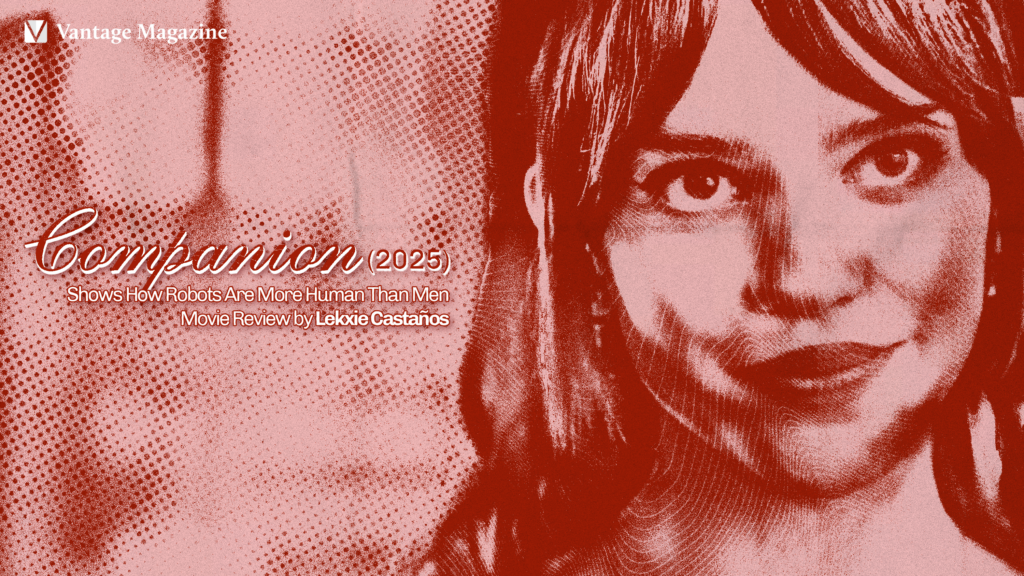ROMANTIC COMEDIES (rom-coms) are a hopeless romantic’s guilty pleasure. The guaranteed cheesy tropes alongside classic endings bring a sense of certainty and comfort to the audience—if executed properly.
Your Place or Mine (2023) was a highly anticipated film released just in time for Valentine’s Day. Rom-com enthusiasts expected nothing but kilig moments knowing the expertise of the director Aline Brosh McKenna, who also wrote the romance holy grail, 27 Dresses (2008). Rom-com veterans Ashton Kutcher and Reese Witherspoon, who starred in No Strings Attached (2011) and Legally Blonde (2001), respectively, were cast as the main leads.
Even with what was deemed as excellent casting, the movie’s release on February 10th made no noise on social media. Rom-coms do not necessarily require a genius plotline to succeed; in fact, the genre thrives off classic tropes done well. However, not even the second-chance romance archetype could save this Netflix film from its poor storyline.
Debbie (Reese Witherspoon) is a type-A mother who has abandoned her dream of becoming an editor to focus on being an accountant. Her character is juxtaposed with the carefree Peter (Ashton Kutcher), a once-aspirant-writer-turned-emotionally-unavailable marketing consultant with commitment issues.
Their story begins with a promising plot: Debbie and Peter agree to exchange locations when the latter has to visit New York to complete her master’s degree. However, this cute location-swap premise is foiled by the main characters’ implausible romance. Even after 20 years, the two know virtually nothing about each other; they only discover their love interest’s passions through side characters like Debbie’s son, Jack, and Peter’s ex-fling, Minka.
Even when the main characters speak with one another, they talk about trivial matters or simply lie about what they are experiencing. Peter and Debbie have never shared their anxieties, hopes, or even any feelings with each other. The romance in Your Place or Mine (2023) banks on the belief that “love conquers all,” but the foundation of this relationship was too weak to make it believable.
Moreover, a second-chance romance is best achieved through frequent, meaningful interaction. This is impossible between Peter and Debbie who have been physically apart for 20 years and dishonest when virtually together. Yet, after a week of being in each other’s places, the two realize that for some reason, they are madly in love with each other.
This epiphany also goes against the very characterization of the main leads. Despite tension involving Debbie’s son and Peter’s private life, any anger the two have quickly fades into a romantic confession as a memento falls from Debbie’s suitcase. The archetypes of the overprotective single mother and the secretive New York bachelor dissipate after a week of barely speaking with their love interest.
While I am all for a cheesy ending, even Your Place or Mine (2023) was too unrealistic.
After potentially ruining each other’s lives through brash actions, Debbie and Peter somehow still feel deep romantic and sexual attraction toward one another. The only consistent character motivations are career-specific, with both Debbie and Peter finally achieving their career goals—though the film never shows them working toward these.
They also share a romantic happily-ever-after,which leaves the audience with several questions. Why did Debbie, a neurotic mom, fall for the man who endangered her son? Why was Peter willing to forgive Debbie for exposing something he kept so private? Most importantly, how did two characters who were dishonest and distant from each other find a happy ending with only two minutes of screen time?
While we get no answers to any of these questions, the verdict is clear: Your Place or Mine (2023) does not have a place in the world of rom-coms to binge-watch this Valentine’s. I guess it’s time to rewatch 27 Dresses instead.






